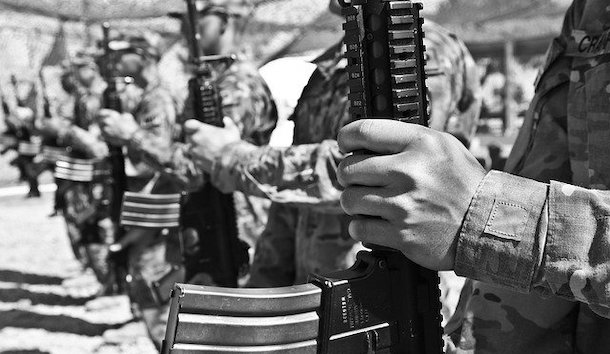During the Second World War the German High Command issued regular bulletins about the situation on various fronts. They had a triumphalist tone in 1940, when France fell, and in 1941, when it looked like the Red Army would collapse, but the core information remained reliable throughout the war. These Wehr machtberichten adopted a sober tone after Stalingrad, and deceptive euphemisms were used (e.g. “ordered withdrawal to previously prepared positions”); but even after Normandy they did not lie about the shifting front lines.
The U.S. government does not have such confidence in the American public. On Dec. 9, after a three-year legal battle, The Washington Post published a review of over 2,000 pages of previously classified government documents on the war in Afghanistan. They came from a project optimistically named “Lessons Learned,” commissioned by the Office of the Special Inspector General for Afghanistan Reconstruction (SIGAR). It provided interviews with over 600 persons directly involved in the war—senior U.S. military officers and civilian officials, diplomats, and aid workers.
The material demonstrates that successive administrations have deliberately and systematically disinformed the nation about the nature of the conflict, its course, and prospects. As SIGAR head John F. Sopko succinctly put it: “The American people have constantly been lied to.”
The Afghanistan Papers reveal that politicians and soldiers were aware that the war was not based on a coherent strategic rationale. “We were devoid of a fundamental understanding of Afghanistan—we didn’t know what we were doing,” Gen. Douglas Lute, who was the White House “Afghan war czar” under Presidents George W. Bush and Barack Obama, told SIGAR in 2015.
“I have no visibility into who the bad guys are,” wrote the war’s key instigator, Bush II’s Secretary of Defense Donald H. Rumsfeld, in a September 2003 memo, almost two years after U.S. forces entered Kabul. The same problem vexed U.S. officers on the ground. Commanders wondered whether al-Qaeda was the primary enemy, or the Taliban; whether Pakistan and the warlords on the CIA payroll were friends of the U.S., or adversaries.
This is astounding. It brings to mind Sun Tzu’s fifth-century tract Art of War: “If you know the enemy and know yourself, you need not fear the result of a hundred battles. If you know yourself but not the enemy, for every victory gained you will also suffer a defeat.”
Equal confusion reigned in the political sphere, where competing and often incompatible agendas remained unresolved. There were democracy-spreading utopians determined to build a strong central government, and zealots hoping to reshape the country’s Islamic culture and promote women’s rights. There were would-be strategists plotting geopolitical gambits vis-à-vis Russia, China, and India, with Kabul as the new pivotal point of the Great Game. “[T]here was a present under the Christmas tree for everyone,” an unnamed official told SIGAR in 2015. “By the time you were finished you had so many priorities and aspirations it was like no strategy at all.”
All along there has been massive waste, graft, and corruption, both by the U.S.-installed regime and its American abettors. Col. Christopher Kolenda, a troop commander and counterinsurgency adviser, said that President Hamid Karzai’s government had “self-organized into a kleptocracy” by 2006. Former U.S. ambassador Ryan Crocker said that perhaps the U.S.’s single biggest project was inadvertently “the development of mass corruption.”
Although the Afghanistan Papers were published by one of the pillars of leftist journalism, they were initially ignored by most mainstream media. To wit, in the week after its release, CNN had made one passing reference to the trove, while devoting many inane segments to outrage over a meme tweeted by the Trump campaign. This is unsurprising, since the Afghanistan Papers do not damage Trump, who still wants speedy disengagement, but rather reveal that the Obama administration was the main culprit for the war’s surge and continuation. Obama tried to convince us that Afghanistan was a Good War, in contrast to Bush’s Iraq debacle.
In reality, both interventions were strategic and moral disasters. As for “lessons learned,” the first one is to never start a war without both a clear strategic objective and a scenario for the political endgame.
And the final lesson is that America should stay away from faraway countries and people of whom we know little, and especially from coarse Muslim lands in the middle of nowhere. After the last GI leaves—whether that be in 2020, or in a hundred years—Afghanistan will soon revert to its usual condition, where lives will continue to be nasty, brutish, and short.
No American should ever have died there. The fact that nearly 2,400 have is both a crime and a mistake. Heads should roll.

Leave a Reply